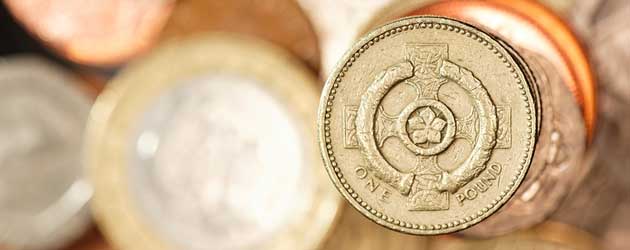
Sterling surged higher against all of its major currency peers yesterday, reaching a number of significant multi-month and multi-year highs as traders reacted to a GDP report from the Office for National Statistics.
In all honesty the third quarter growth reading of 0.8% was largely expected by markets and did not really feature anything new to be optimistic about. Business investment was shown to have increased slightly on the previous estimate, which is good news, but the bulk of economic growth was seen to have derived from private consumption, which is not so good.
With UK CPI inflation running way above wage growth it is unlikely that Britain will be able to mount a sustainable revival based on consumer spending alone. A veritable improvement in exports is vital.
However, the strong response to the Q3 growth print shows that there is latent support for the Pound within financial markets and, with a number of significant technical resistance levels broken yesterday, further Sterling gains are entirely possible.
The Pound to Euro exchange rate (GBP/EUR) grew by around half a cent yesterday, breaching 1.2000 for the fourth time in seven days. However, Sterling was unable to maintain a rate above this level as two fairly spectacular political developments were seen to support the single currency. Angela Merkel finally secured a deal to form a coalition in Germany and Silvio Berlusconi was finally expelled from the Senate in Italy.
Sterling broke through tough resistance at 1.6260 (GBP/USD) against the US Dollar yesterday, for the first time since January, and subsequently also breached a psychologically significant level at 1.6300. The break higher paves the way for further gains towards 1.6355. The US Dollar was damaged by a surprisingly steep -2.0% drop in Durable Goods Orders, but clawed back some of its losses as Jobless Claims shrunk by -10,000 and the Michigan Confidence Survey improved to 75.1.
GBP/CAD struck a fresh 3.5-year high as the trend of commodity currencies ceding strength to the European majors continued. Sterling also hit a 3-year high against the Australian Dollar and a 2-month high against the New Zealand Dollar as fears of a possible Dec-taper hurt demand for the high-risk commodity bloc. The embattled Japanese Yen plummeted to a fresh 5-year low against the UK currency.
With the majority of US traders likely to be feasting on turkey and spending time with family (God forbid!) rather than buying and selling international currency over the next two days, strong market movement is not expected today nor tomorrow. However, Sterling could push ahead against the Euro if this morning’s German jobs and inflation figures are subject to any downside revisions.

Comments are closed.